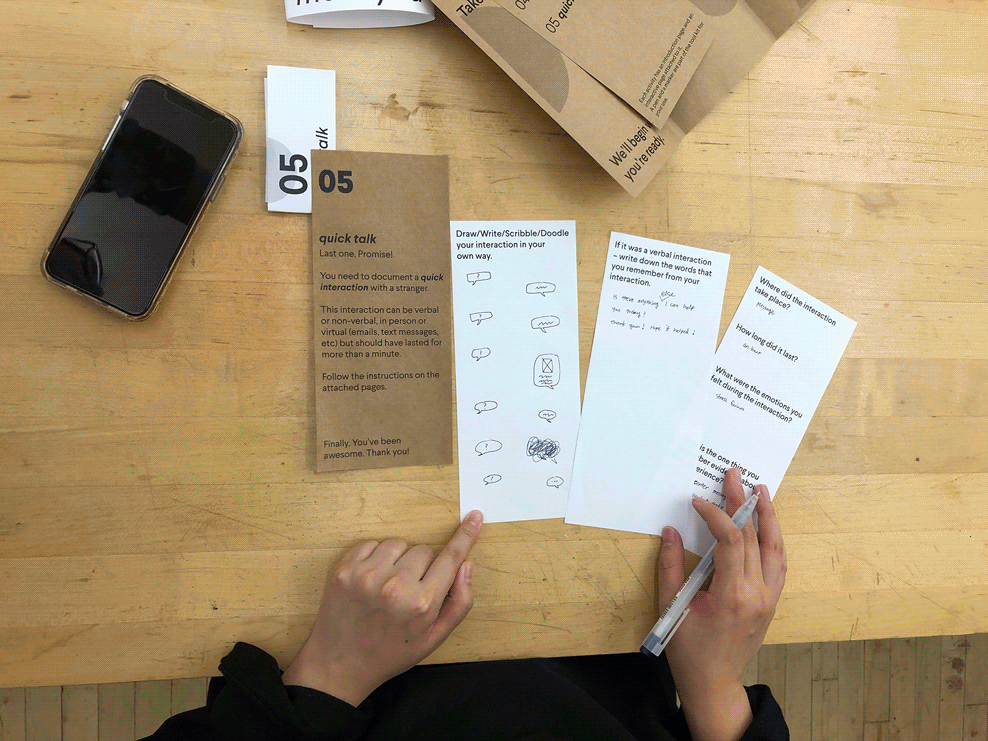1. Random page
Prompt
The participants were given a page of text and asked to mark all the words that evoke emotions/ thoughts/feelings in them and find an obvious way to mark those words.
Insights
Each participant found a way to represent their chosen words– erasing the other words/sentences, tearing, or scribbling over the words. All of the participants had picked mostly the same words that resonated with them while reading the entire text. They chose a word or group of words based on the clarity it provided to the sentence and the meaning of the passages.
3. Less is more
Prompt
The participants were first asked to read through a passage and rewrite it to a maximum of 10 words without changing the intent of the sentence. In the next step, they were asked to show a friend/colleague their rewritten sentence and ask their comment on the nature, structure, and understandability of the shorter sentence.
Insights
The participants found it hard to reduce it to 10 words and still keep the paragraph's actual intent. Because of the limitation of words - the new sentence seemed rigid, limited, and grammatically incorrect. The participants felt that with more words, the sentences could sound polite and still be able to convey the exact meaning.
4. Reel real words
Prompt
The participants were first asked to pick a digital interface and write down a set of interactions in linear order. They had to note every word they clicked on to go to a new page or a result or any other interaction. Based on each word they clicked - they had to consider the literal meaning of the word/what action it prompted them to do or a feeling they had while interacting.
Insights
The participants wrote down literal meanings/actions/feelings of the word/Microcopy. A few pointed out unnecessary steps to an action or words that did not make sense in that particular interaction. They associated brand names with a few words. Some results showed that the words did not provoke any feeling or seemed invisible because they were used to the interface (muscle memory).
5. Quick talk
Prompt
The participants were asked to document their interaction with a stranger in the forms of words/sentences or drawings. The communications to be observed could be in any form – digital, verbal, non-verbal.
Insight
The drawings of the conversations felt brief and direct, and words were only added for better understanding. Short phrases from the interactions were noted for clarity. Virtual conversations with chatbots looked similar to scripted dialogues of cashiers/retail shops.






